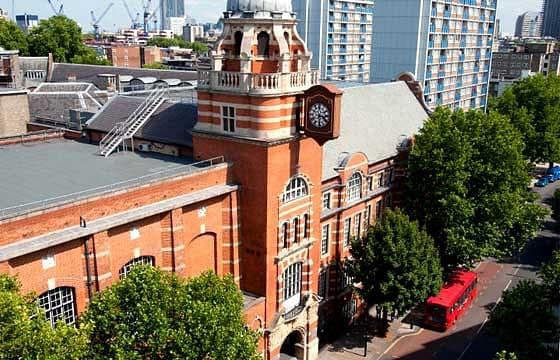This accredited integrated master’s covers structures, geotechnics, hydraulics, and sustainability applied to civil and infrastructure engineering. Over four years, you will develop professional engineering skills, with a focus on innovative and sustainable solutions to infrastructure problems.
Individual and group engineering design projects demonstrate your expertise to future employers. Whilst a fourth year, at master’s level, helps you transition from study to professional practice.
-
Benefit from exceptional industry involvement in the degree programme, including projects set by industry and guest lectures from practising engineers
-
Access world leading laboratories, including our flagship Geotechnical Centrifuge Facility, where you conduct research and test your theories
-
Get hands-on experience with concrete, soil and other materials testing equipment
-
Take an optional placement year or placement over two summer periods to boost your employability. Recent placements have included Balfour Beatty, AECOM, Arup, Interserve and Network Rail
-
Enjoy easy access to leading civil and structural engineering contractors and consultants thanks to our central London location.
-
Fast track your progress to Chartered Engineer status, with a degree that meets all academic requirements for professional registration.
This course is subject to approval.
Course content
You’ll develop a strong technical background for civil and infrastructure engineering.
Year 1
Common engineering year to build a firm foundation in mathematics, engineering, physics, fluid mechanics, material, electronics and programming. Undertake diverse engineering design projects.
-
The Engineering in Society - Social responsibility (15 credits)
-
Engineering Design 1 (15 credits)
-
Introduction to Mechanics of materials and manufacturing (15 credits)
-
Electronics - including circuits, digital and analog electronics (15 credits)
-
Introduction to programming (15 credits)
-
Engineering Science (15 credits)
-
Mathematics 1 (15 credits)
-
Introduction to Thermodynamics and Fluid Mechanics (15 credits)
Year 2
Specialise with modules including geology, soil mechanics, materials and structures, data analysis and surveying. Complete a design project in partnership with local engineering consultancies.
-
The Engineer in Society: Sustainability and Circular Economy (15 credits)
-
Mathematics 2 (15 credits)
-
Engineering Design 2 (15 credits)
-
Fluid Mechanics (15 credits)
-
Geology and Materials (15 credits)
-
Structural and Soil Mechanics (15 credits)
-
Sensor Systems, Instrumentation and Surveying (15 credits)
-
Data Analysis for Engineers (15 credits)
Year 3
Deepen your expertise with applied modules in analysis and design of typical geotechnical, hydraulic and structural forms, with computational analysis techniques and management. Undertake the design of urban infrastructure.
-
Individual project (30 credits)
-
The Engineer in society: Infrastructure for Net Zero (15 credits)
-
Finite Element Analysis of Structures (15 credits)
-
Geotechnical Engineering (15 credits)
-
Design of Urban Infrastructure (15 credits)
-
Hydraulics and Marine Infrastructure (15 credits)
-
Construction Management and BIM (15 credits)
Year 4
Transition from academic study to professional practice with an integrated design project supported by our industry partners. This is complemented by advanced modules, of which two can be chosen from a wide variety of modules to give you the opportunity to direct your degree to your specific area of interest.
-
Design project (group): Integrated Infrastructure Project (30 credits)
-
The Engineer in Society: Infrastructure Resilience (15 credits)
-
Energy Infrastructure and Sustainability (15 credits)
-
Structural Dynamics and Stability (15 credits)
-
Analysis of Geotechnical Infrastructure (15 credits)
-
Computational Fluid Dynamics (15 credits)
-
Energy in the Built Environment (15 credits)
-
Information Management and BIM in Construction (15 credits)
-
Introduction to Temporary Works - Online (15 credits)
-
Project Funding and Finance (15 credits)
-
Design of Concrete Structures (15 credits)
-
Design of Steel and Composite Structures (15 credits)
-
Bridge Engineering (15 credits)
-
Earthquake Analysis of Structures (15 credits)


